So you want to be a songwriter- Whether you’re looking to turn songwriting into a career or just a new hobby, there are several aspects involved in perfecting the craft. First, it’s important that you are dedicated to working hard at learning the necessary skills involved with this particular activity. It is okay if you don’t currently play in instrument but your first step should involve learning how to play chord progression on the piano; in return this will teach you to create melodies.
Composing a song involves details such as lyrics, harmony, melody and of course the beat. In order to become a successful songwriter it’s crucial that you invest the time and energy in studying the basics. At Sing Like a Star, you can learn music theory, chords and the musical skills necessary to be able to create your songs in no time!
Write down your ideas whenever they come to you. We suggest carrying a notebook or journal with you at all times. That tune in your head might be the next big pop hit! Tricia recommends that you write down five song title ideas per day, in order to have ideas ready when you want to write. This helps to keep the creative juices flowing!
Copyright – After you have written with regularity and you feel confident with your compositions, it would be in your benefit to register your music with the United States Copyright Office. We suggest registering before you start searching different avenues to use your work. This is the best way to ensure protection of your songs.
Songwriting is a craft that can be learned by individuals of all ages and skill levels. If you’re serious about furthering your songwriting talents then it’s recommended to partake in lessons that are specifically designed around writing songs. This can ensure that you fully understand the elements that go into writing a song and are headed in the right direction. For more tips and advice on songwriting please visit the link below.
https://www.singlikeastar.com/available-services/songwriting.html


